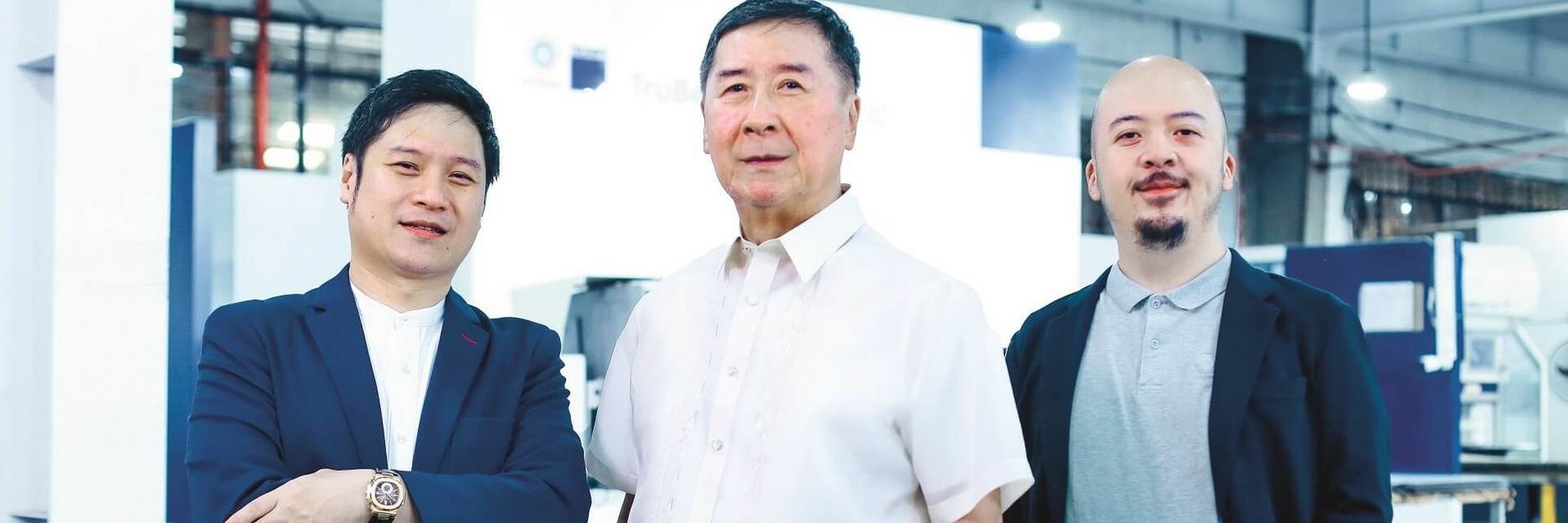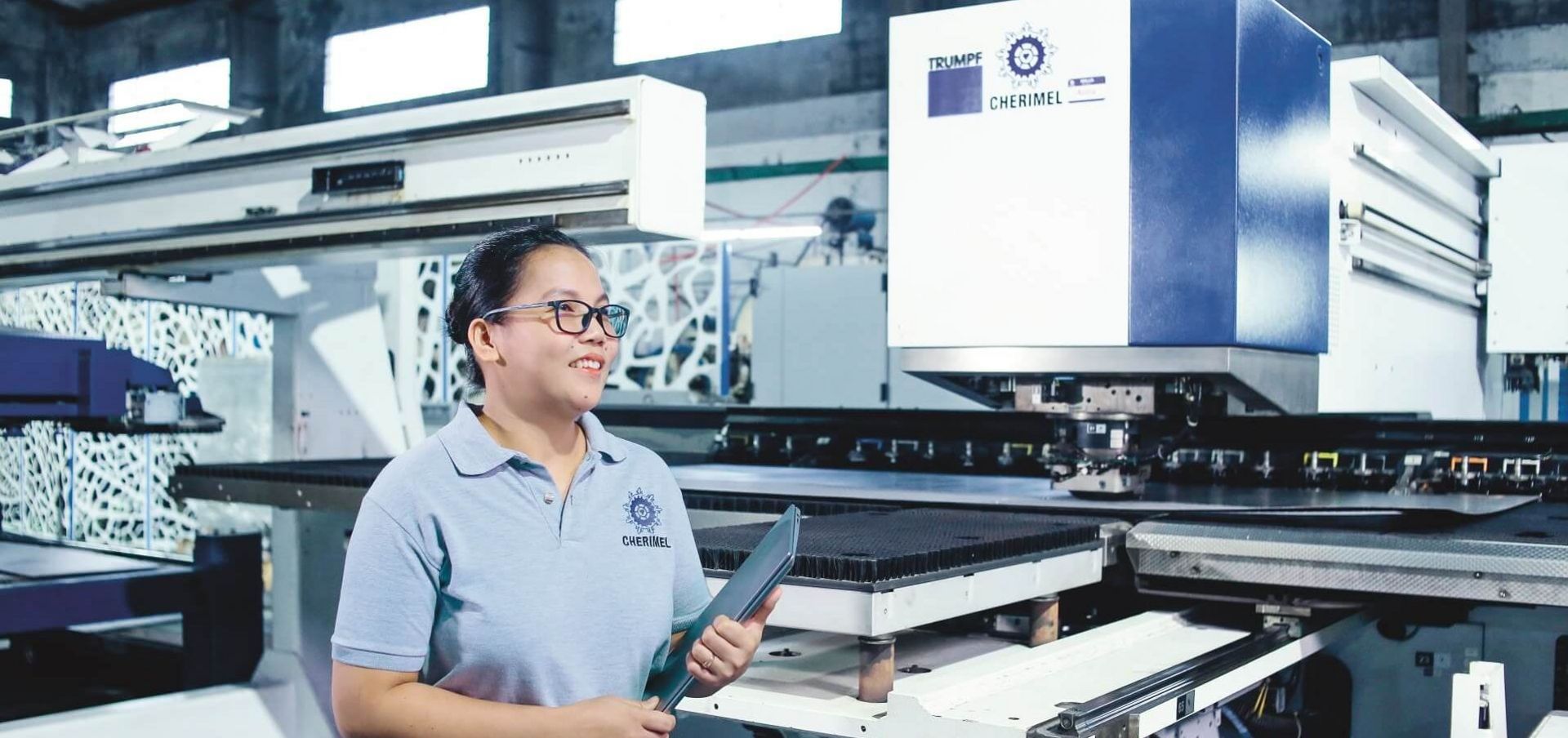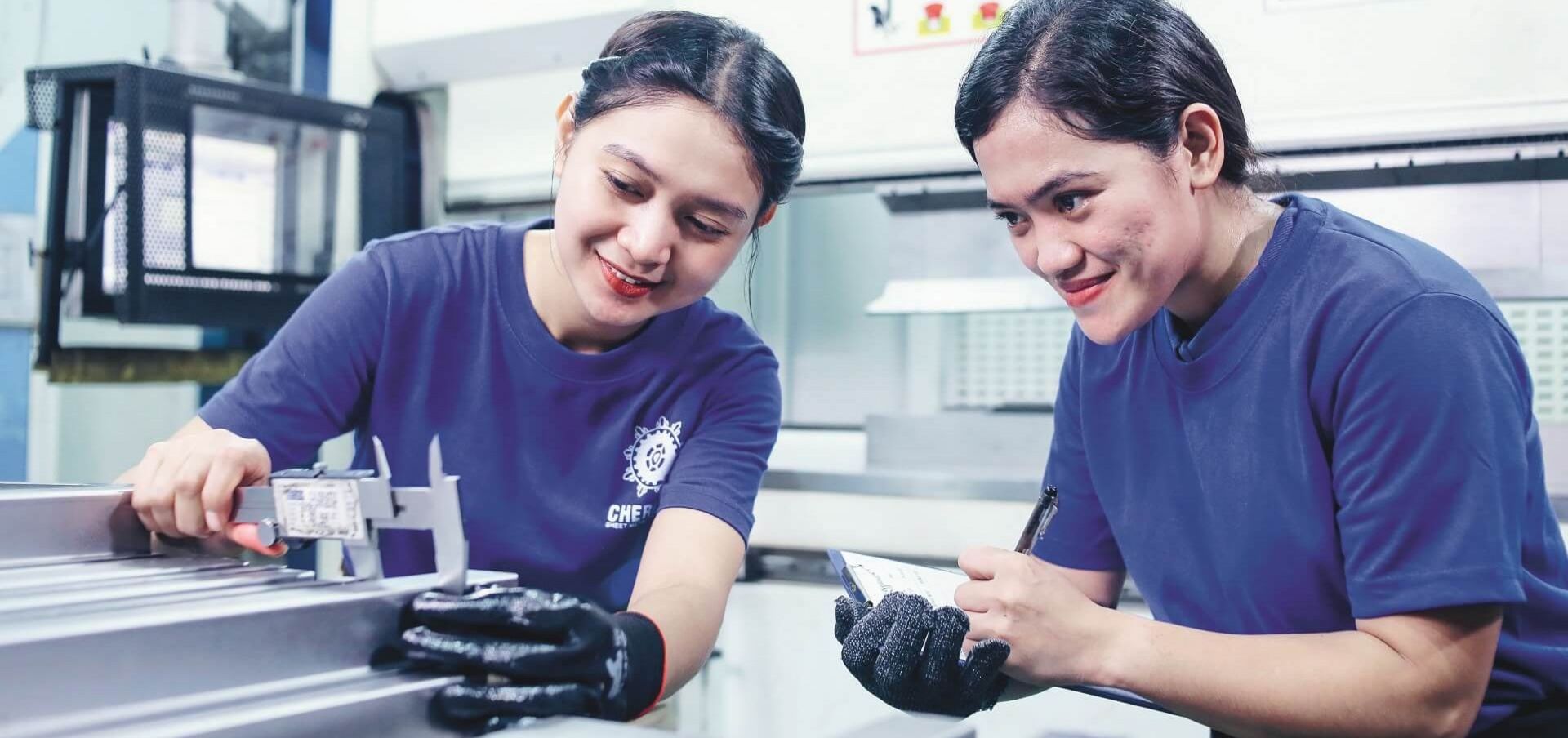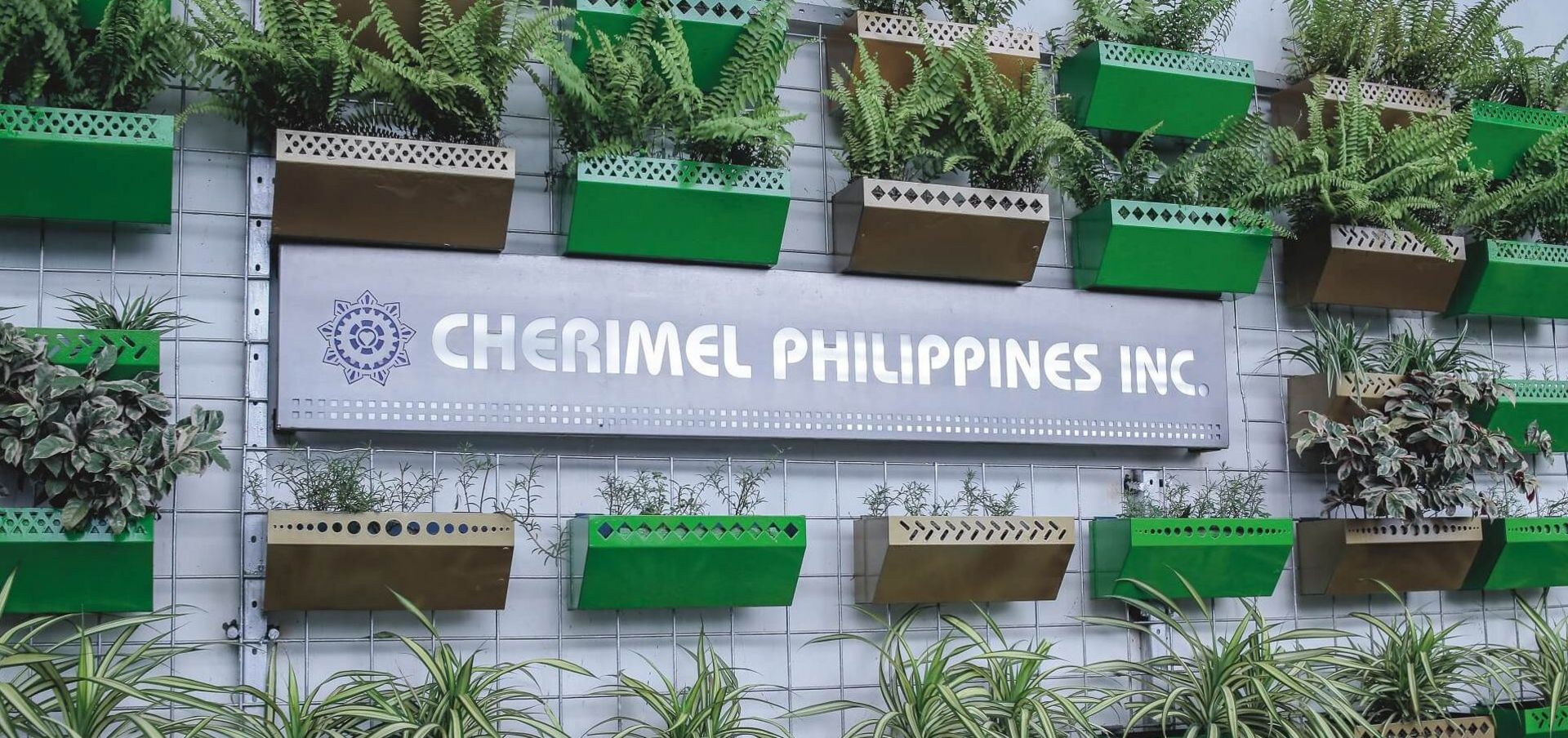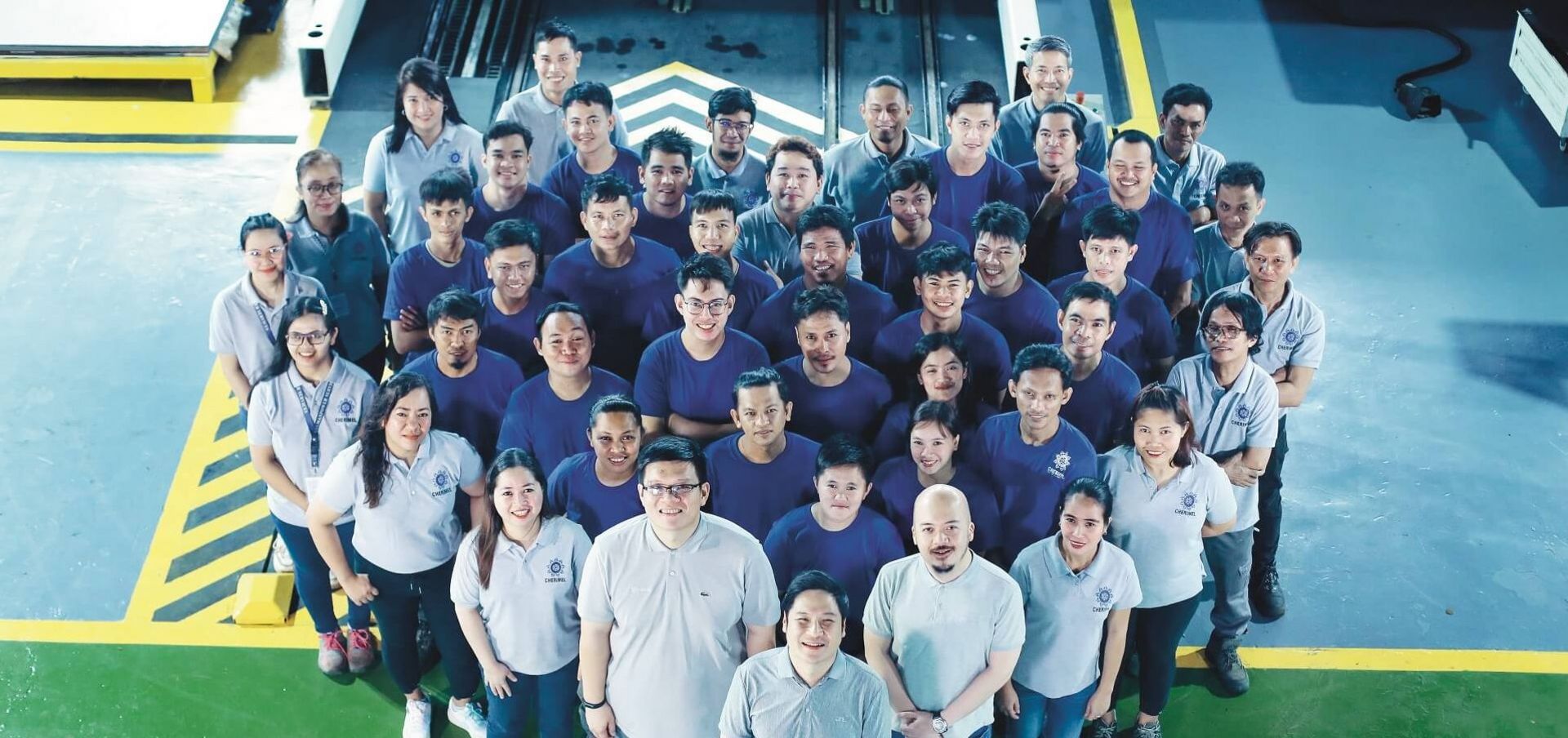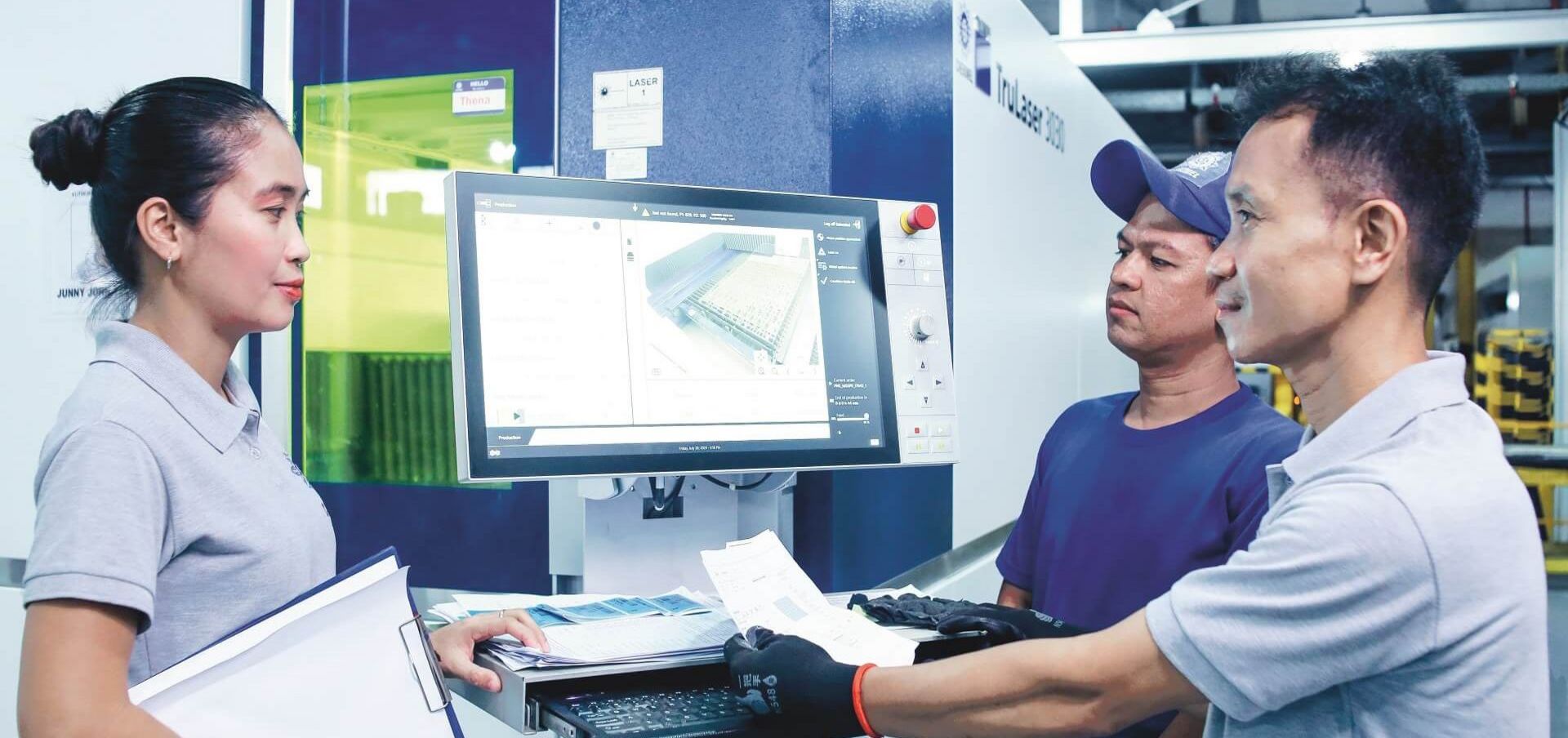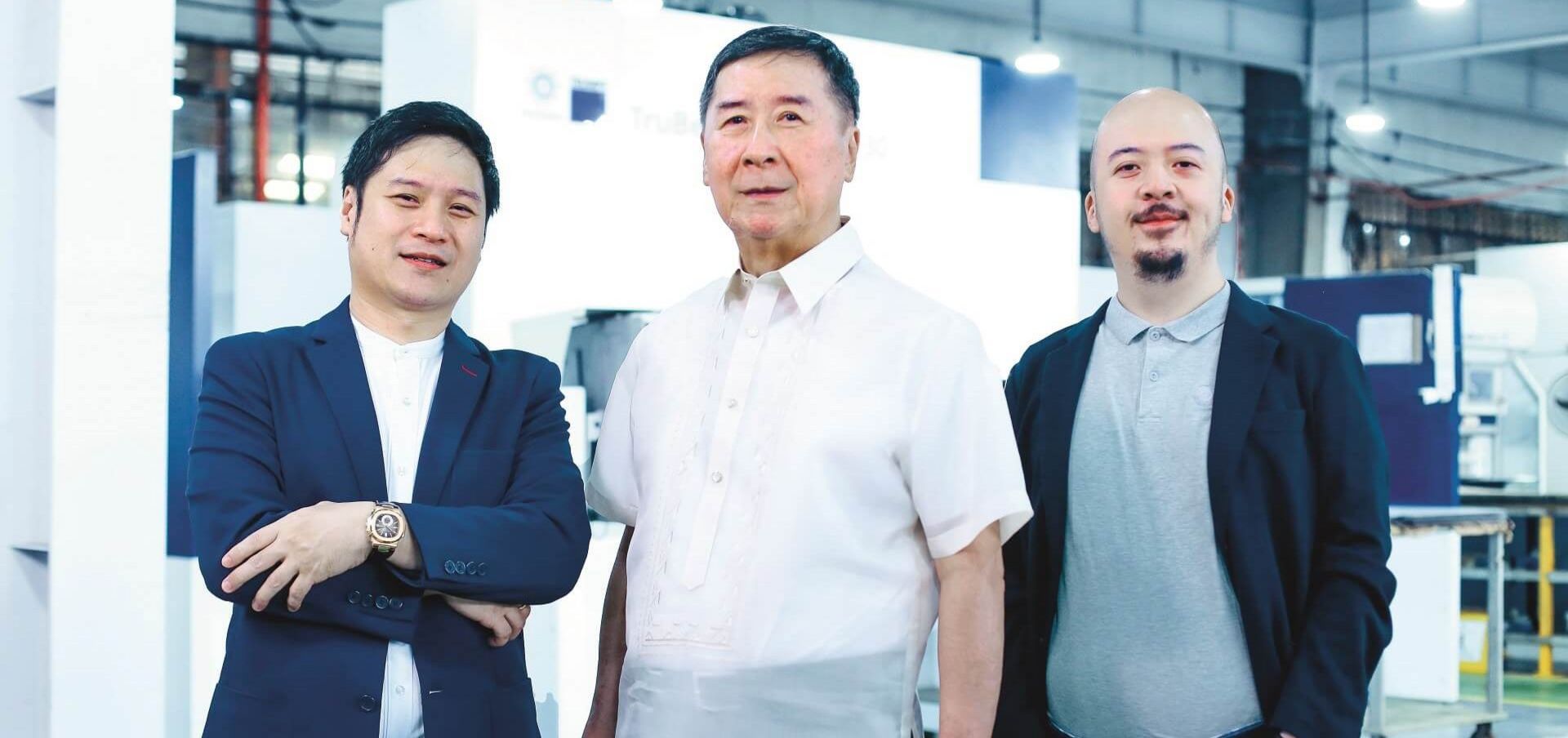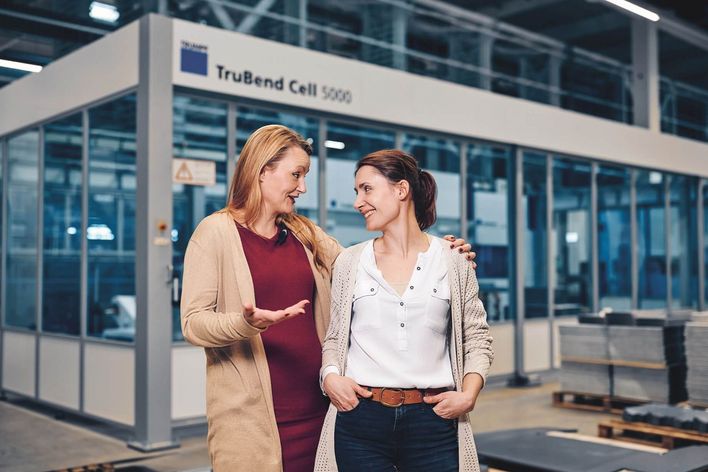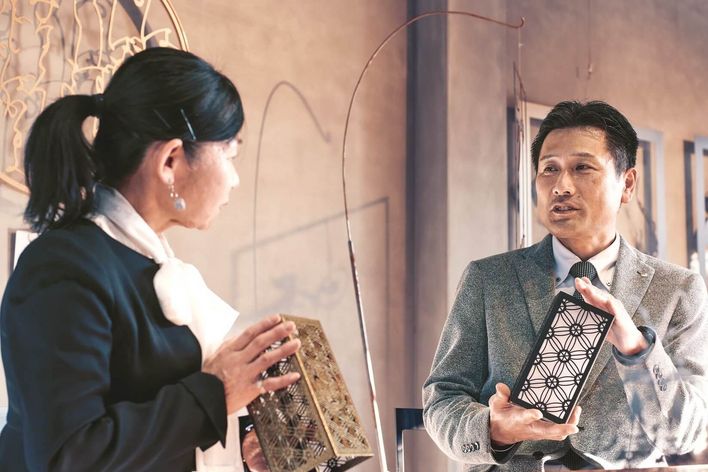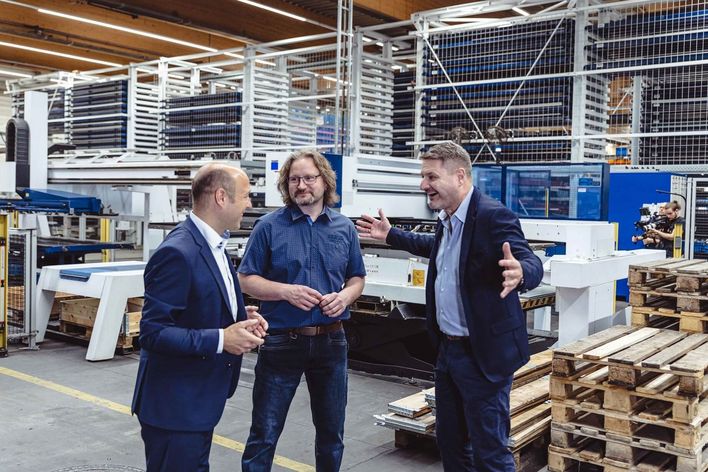The moment you enter the parking lot, you can see that Cherimel Philippines Inc. is on a growth trajectory. The rows of cars neatly lined up in front of the four-meter-high metal gates to the production facility show that many employees are already at work. Cherimel is headquartered in Caloocan, a city in the northern metropolitan area of Manila, the capital of the Philippines. Tall trees sway over the outer walls of the company’s premises and lush greenery fills the open spaces between buildings. Around the company’s nameplate is a latticework of planter boxes containing ferns, palms and other plants, an attractive piece of metalwork that Nathaniel and Andrew Cu fabricated themselves. “That was our very first laser, a three-kilowatt machine,” says Nathaniel Cu, pointing to a TruLaser 3030 just beyond the metal gates. This laser heralded Cherimel’s transformation into a high-tech company that can handle just about any metalworking job – and the beginning of TRUMPF’s involvement in the Filipino market.
Named after the founder’s daughters
Nathaniel and Andrew Cu are the third generation of their family to run Cherimel. They have been at the helm since 2010, and their father, Jeffrey Cu, has been company president since 1994. But Cherimel’s origins stretch all the way back to 1950, when Cherimel Manufacturing Corp. was founded by their grandfather, Paul Eiaw. It wasn’t until Jeffrey took over in 1994 that he changed the company’s name to Cherimel Philippines Inc., retaining the first-word combination of the names of his father-in-law’s daughters, Cherrie and Nellie. “Our grandfather decided not to correct the mistake made by the registration authorities, who had mistakenly written the ‘n’ as an ‘m’,” says Nathaniel Cu.
Over the years, each generation of the family has left its own mark on the company. Nathaniel and Andrew’s grandfather was perhaps best known for being the first person in the world to manufacture paper clips, and for fabricating the intricate metal legs of old Singer sewing machines. But he also enjoyed making his own car jacks. “Our grandfather loved producing things that nobody else wanted to make,” recalls Nathaniel. He also fabricated the first stamped sheet-metal parts for the motorcycle industry, including the metal plates showing the vehicle identification number and model name. Their father, Jeffrey Cu, subsequently took the business to the next level, moving its headquarters to new premises in Caloocan in the early 2000s and expanding its portfolio to include customers from the automotive industry.
“Cherimel gets the job done” is the company motto – a sign of how hard they work to meet their customers’ needs. Instead of focusing on a specific industry or product group, the Cu family opted to remain as agile and versatile as possible and to concentrate on growth. Today, the company employs 90 people, up from fewer than 30 when Jeffrey took over in 1994. “When I took the helm, my goal was to build a high-tech fabrication business,” says Nathaniel. At that point, Cherimel could bend and punch sheet metal, but they couldn’t cut it. “We were struggling to meet some of our customers’ wishes, so we clearly needed a laser,” says Nathaniel. He ordered a TruLaser 3030 in 2015, and the machine cut its first sheet-metal parts in January 2016. This coincided with a decline in demand for punched products, so it was perfect time to fundamentally reorganize the company’s production processes.
A pioneering sector in the Philippines
In the early 2000s, TRUMPF still had no access to the Filipino market, and many local companies were working with other manufacturers. TRUMPF didn’t yet have a team of service technicians in the country, and the German high-tech company wasn’t even on Cherimel’s radar. Today, things are very different. A green corridor winds its way through the 5,000-square-meter production facility, taking us past metal cabinets ready for shipment, ATM housings, and yellow-and-red display cases for a famous fast-food company. The machines are neatly arranged between the finished products: three TruLaser 3030s with three, six and ten kilowatts of power, two TruPunch 5000s, the TruBend Center 5030, a TruBend 3100 and a TruBend 7036. TRUMPF is also due to deliver a TruBend 5170 in February 2024.
Over an eight-year period, Cherimel added a new TRUMPF machine each year. This steady transformation into a high-tech company has enabled it to take on more complex jobs. While their grandfather manufactured products for the motorcycle industry and their father focused on the automotive industry, the two Cu sons are now focused on tapping into new markets. As an ISO and AS certified company, Cherimel is ideally positioned to serve the aerospace industry. As well as producing parts for truck chassis, its modern facility also manufactures body parts. But with so many bases to cover, space is getting tight.
Next step: the smart factory
The Cu brothers next goal is to make the transition to a smart factory. “Digitalization is the key to even greater efficiency,” says Nathaniel. “Our vision is to create an efficient, paperless system for our suppliers and customers.” Once again, TRUMPF has come up trumps with its Oseon software, which helps users take the next step toward fully automated sheet-metal processing. “We want to build an agile company with unlimited capabilities that makes even more efficient use of resources. That will enable us to offer customers an even more sustainable production process,” says Nathaniel.
Andrew and Nathaniel’s father was an electrical engineer with a vision, someone who believed in sustainable products that could be recycled and reused. The two brothers are determined to continue that vision, the essence of which their father captured in the company logo. This hangs amid the planter boxes at the entrance to the production hall. Cut out of sheet metal, it shows a gear wheel with a heart in the middle, protected by a ring of nine sunbeams. In religion and mythology, the number nine stands for completion and fulfillment. A fitting choice for Cherimel, which has built its success on its ability to get the job done.

